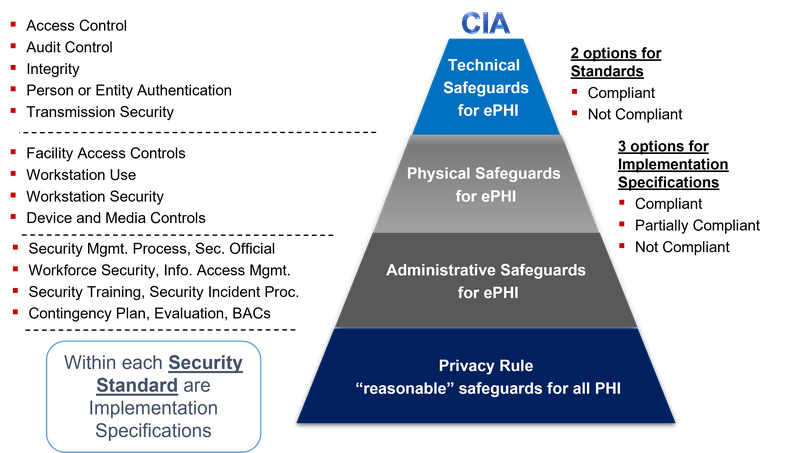What Does HIPAA Compliance Really Cost in 2025?


The healthcare industry faces an unprecedented HIPAA compliance crisis that's reshaping how organizations approach data protection and regulatory adherence. Recent studies reveal that 89% of healthcare organizations experienced at least one data breach in the past two years, with the average cost of a healthcare data breach reaching $10.93 million in 2024.
HIPAA compliance has evolved from a regulatory checkbox into a business-critical investment that directly impacts organizational survival and growth. The Office for Civil Rights has levied over $140 million in HIPAA penalties since 2003, with individual violations ranging from $100 to $50,000 per incident and maximum annual penalties capping at $1.5 million per violation category.
Yet despite these staggering financial risks, a surprising 58% of healthcare organizations still lack comprehensive HIPAA compliance programs, largely due to confusion about implementation costs and resource requirements. Small practices often assume compliance is prohibitively expensive, while larger health systems struggle to quantify the true investment needed across multiple facilities and departments.
The reality is more nuanced than many realize. While HIPAA compliance certification requires significant upfront investment, typically ranging from $10,000 for small practices to over $500,000 for large health systems, the cost of non-compliance far exceeds these implementation expenses. Organizations that experience major HIPAA violations face average total costs of $2.4 million, including penalties, legal fees, remediation expenses, and reputation damage.
Understanding the true cost structure of HIPAA compliance certification enables healthcare organizations to make informed decisions, allocate resources effectively, and transform regulatory requirements from operational burdens into competitive advantages that build patient trust and operational excellence.
Understanding HIPAA Compliance Certification

The Health Insurance Portability and Accountability Act of 1996 revolutionized how healthcare organizations handle protected health information (PHI). While many view HIPAA as a set of rules about patient privacy, it's actually a comprehensive framework that governs everything from data security to business associate agreements. This complexity directly impacts certification costs, as organizations must address multiple compliance areas simultaneously.
HIPAA compliance is mandatory for covered entities including healthcare providers, health plans, and healthcare clearinghouses. The stakes are incredibly high: violations can result in fines ranging from $100 to $50,000 per incident, with annual maximums reaching $1.5 million per violation category. These potential penalties make compliance certification costs seem modest by comparison.
Breaking Down HIPAA Compliance Certification Costs
Initial Assessment and Gap Analysis
The journey to HIPAA compliance begins with understanding where you currently stand. Professional HIPAA assessments typically range from $5,000 to $25,000, depending on your organization's size and complexity. Small practices might spend closer to the lower end, while large healthcare systems or multi-location organizations often invest $15,000 to $50,000 or more.
These assessments examine your current policies, technical infrastructure, employee training programs, and business associate agreements. The thoroughness of this initial evaluation directly impacts the accuracy of your compliance roadmap and budget projections.
Policy Development and Documentation
HIPAA requires extensive documentation of policies and procedures. Organizations can choose between developing these internally or hiring external consultants. Internal development might seem cost-effective but often proves more expensive when considering staff time and potential oversights.
Professional policy development services typically cost between $3,000 and $15,000. This investment includes customized policies, procedures, forms, and templates tailored to your specific operations. The upfront cost often pays dividends by ensuring comprehensive coverage and reducing future compliance risks.
Technical Safeguards Implementation
Technology represents one of the largest HIPAA compliance cost categories. The specific requirements depend heavily on your current IT infrastructure and the types of electronic protected health information (ePHI) you handle.
Basic technical safeguards might include:
- Encryption Solutions: $500 to $5,000 annually, depending on the number of devices and data volume. Email encryption, database encryption, and device encryption all contribute to this category.
- Access Control Systems: $2,000 to $20,000 for implementation, plus ongoing licensing fees. These systems ensure only authorized personnel can access ePHI and maintain detailed audit logs.
- Backup and Recovery Solutions: $1,000 to $10,000 annually, depending on data volume and recovery requirements. HIPAA mandates that covered entities maintain retrievable exact copies of ePHI.
- Network Security Enhancements: $3,000 to $30,000 for firewalls, intrusion detection systems, and network monitoring tools. These investments protect against unauthorized access and data breaches.
- Staff Training and Education: Human error remains one of the leading causes of HIPAA violations, making staff training a critical investment. Comprehensive HIPAA training programs cost between $50 and $200 per employee annually. Organizations with 100 employees might budget $5,000 to $20,000 yearly for training initiatives. Effective training programs include initial onboarding education, annual refresher courses, role-specific training, and incident response preparation. The investment in education often prevents costly violations and builds a culture of compliance awareness.
- Business Associate Agreements and Vendor Management: HIPAA extends compliance responsibilities to business associates - third-party vendors who handle ePHI on your behalf. Managing these relationships involves legal review, contract negotiation, and ongoing monitoring. Legal fees for business associate agreement development typically range from $500 to $2,000 per agreement. Organizations working with multiple vendors might invest $10,000 to $50,000 in comprehensive business associate management programs.
- Ongoing Monitoring and Maintenance: HIPAA compliance isn't a destination - it's an ongoing journey requiring continuous attention and investment. Annual compliance monitoring typically costs between $2,000 and $15,000, depending on organizational complexity. This ongoing investment includes regular risk assessments, policy updates, security monitoring, and compliance reporting. Many organizations find that investing in continuous monitoring prevents larger, more expensive compliance issues down the road.
Size-Based Cost Considerations
Small Practices (1-10 Employees)
Small healthcare practices typically invest $10,000 to $30,000 in initial HIPAA compliance certification, with annual maintenance costs ranging from $3,000 to $8,000. These organizations often benefit from streamlined compliance solutions and templates designed specifically for smaller operations.
The key challenge for small practices is balancing comprehensive compliance with budget constraints. Many successful small practices prioritize essential safeguards first, then expand their compliance programs as resources allow.
Medium Organizations (11-100 Employees)
Medium-sized healthcare organizations generally invest $25,000 to $75,000 in initial compliance certification, with annual costs ranging from $8,000 to $25,000. These organizations typically require more sophisticated technical solutions and comprehensive training programs.
The complexity of medium organizations often necessitates professional consulting services and more robust documentation systems. However, the larger budget typically allows for more comprehensive compliance programs.
Large Healthcare Systems (100+ Employees)
Large healthcare organizations and systems typically invest $75,000 to $500,000 or more in comprehensive HIPAA compliance programs. Annual maintenance costs often range from $25,000 to $150,000, reflecting the complexity of managing compliance across multiple locations and departments.
These organizations often develop internal compliance teams and invest in enterprise-level security solutions. The scale allows for more sophisticated approaches but also introduces additional complexity and coordination challenges.
Hidden Costs and Budget Considerations
Opportunity Costs
HIPAA compliance requires significant staff time and attention. Internal resources spent on compliance activities represent opportunity costs that many organizations underestimate. A practice administrator spending 20 hours monthly on compliance activities represents roughly $10,000 to $15,000 in annual opportunity costs.
Technology Upgrades
Existing technology systems often require upgrades or replacements to achieve HIPAA compliance. Legacy systems might need complete overhauls, representing unexpected costs that can significantly impact budgets.
Breach Response Preparation
While nobody plans for data breaches, HIPAA requires organizations to have comprehensive breach response procedures. Cyber liability insurance, legal retainer agreements, and incident response planning represent additional costs many organizations overlook.
Cost-Benefit Analysis: The Value of HIPAA Compliance
Avoiding Penalties
HIPAA violations can result in substantial penalties ranging from $100 to $50,000 per violation, with maximum annual penalties reaching $1.5 million. A single significant breach can cost millions in fines, legal fees, and remediation costs.
Investing in proper HIPAA compliance certification provides insurance against these potentially devastating financial impacts. The cost of compliance is almost always significantly less than the cost of violations.
Competitive Advantages
HIPAA compliance certification can provide significant competitive advantages. Patients increasingly value organizations that demonstrate strong privacy protections. Business partners often require proof of HIPAA compliance before entering relationships.
These competitive advantages can translate into increased patient volume, stronger business partnerships, and enhanced reputation—all contributing to improved financial performance.
Operational Efficiency
Proper HIPAA compliance often improves overall operational efficiency. Standardized procedures, better documentation systems, and enhanced security measures frequently result in smoother operations and reduced administrative overhead.
Strategies for Managing HIPAA Compliance Costs
Phased Implementation
Organizations can manage costs by implementing HIPAA compliance in phases, prioritizing the most critical elements first. This approach spreads costs over time while ensuring continuous progress toward full compliance.
Leveraging Technology Solutions
Modern technology solutions often provide cost-effective approaches to HIPAA compliance. Cloud-based platforms, automated monitoring tools, and integrated compliance solutions can reduce both implementation and ongoing costs.
Professional Partnerships
Working with experienced HIPAA compliance professionals can actually reduce overall costs by avoiding common mistakes and ensuring efficient implementation. The upfront investment in professional services often prevents more expensive remediation efforts later.
Planning Your HIPAA Compliance Budget
Creating an accurate HIPAA compliance budget requires careful consideration of your organization's specific needs, current state, and long-term goals. Start with a comprehensive assessment to understand your current compliance posture and identify specific requirements.
Consider both one-time implementation costs and ongoing operational expenses. Build contingency funds for unexpected requirements or technology upgrades. Remember that HIPAA compliance is an investment in your organization's future security and success.
The most successful organizations view HIPAA compliance not as a regulatory burden but as a strategic investment in patient trust, operational excellence, and business sustainability. While the costs are significant, the benefits include avoided penalties, competitive advantages, and enhanced operations typically justify the investment.
Conclusion
HIPAA compliance certification costs vary widely based on organizational size, complexity, and current security posture. However, the investment in proper compliance pays dividends through avoided penalties, competitive advantages, and enhanced operational efficiency.
The key to successful HIPAA compliance budgeting lies in understanding your specific requirements, planning for both implementation and ongoing costs, and viewing compliance as a strategic investment rather than a regulatory burden. With proper planning and execution, HIPAA compliance certification becomes not just a legal requirement but a foundation for sustainable healthcare operations.
By taking a comprehensive approach to HIPAA compliance certification, healthcare organizations can protect their patients, their business, and their future while managing costs effectively. The investment in compliance today prevents much larger costs tomorrow, making it one of the most important investments any healthcare organization can make.
Don't Let HIPAA Violations Cost You Millions. While the average healthcare breach costs $10.93 million, smart organizations are cutting HIPAA compliance costs by 75% with automated solutions.
See how Regulance AI transforms complex HIPAA requirements into simple, cost-effective compliance.